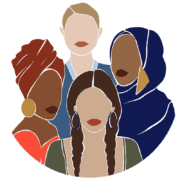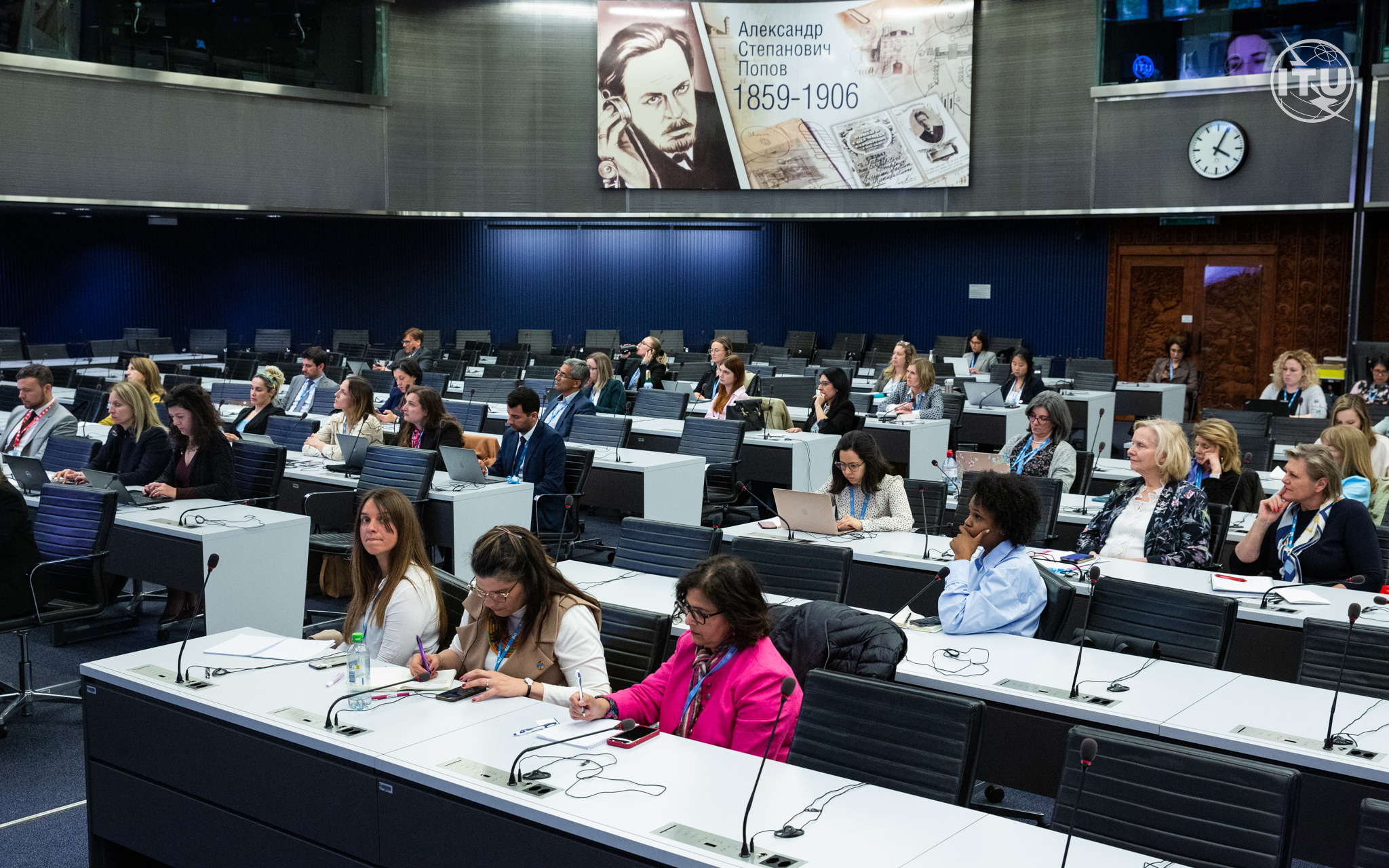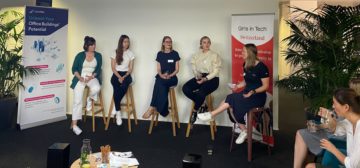Our event in collaboration with UN Women “Technology and Innovation for Gender Equality. Building on the Agreed Conclusions of the 67th Commission on the Status of Women (CSW)” was held on May 11, 2023, from 3pm to 4.30 pm at the International Telecommunications Union (ITU) in Geneva. Read the summary of this event below.
More than 100 participants registered for the event in Geneva, which aimed to disseminate the CSW Agreed Conclusions among Geneva audiences linking the work of UN Women in New York and Geneva on gender equality and women’s empowerment within the areas of technology and innovation.
Organized by UN Women, ITU and Girls in Tech Switzerland, the event also sought to identify potential areas of work with other UN agencies, private sector entities and, strengthen global advocacy on the importance of implementing CSW Agreed Conclusions.
The panel discussion, moderated by Anne-Sophie Scharff, Co-Managing Director of Girls in Tech Switzerland, featured the participation of the following speakers:
- Amanda Gorely (Permanent Representative of Australia to the United Nations Office at Geneva)
- Doreen Bogdan-Martin (ITU Secretary General)
- Mathu Joyini (Chair of the 67th Session of the Commission on the Status of Women and Permanent Representative of South Africa to the United Nations in New York)
- Adriana Quinones (Head, Human Rights and Development, at UN Women Geneva Office)
- Peggy Hicks (OHCHR Director)
- Cosmas Luckyson Zavazava (ITU, Director, Telecommunication Development Bureau),
- Philippe Lust-Bianchi (Spotlight Technical Specialist)
- Giovanna Dughera (Senior Partner Development Manager for Microsoft Start-ups Switzerland)
The topics addressed in the event were:
- gender digital gap in access and skills
- inclusive and transformative innovation ecosystems
- gender-responsive technology design, development and deployment
- online gender-based violence
Amanda Gorely kicked-off the discussion and recognized the valuable contribution to international norms on gender equality made by this year’s CSW Agreed Conclusions, emphasizing that the gender digital divide has significant consequences for gender equality, such as excluding women and girls form accessing services, information and opportunities, a risk that is amplified for Indigenous women and girls. She highlighted that gender equality is central to their diplomatic, economic and development efforts, while advancing gender equality remains a key focus of their development programme.
Australia showed their commitment to enable the leadership of women and girls in digital technologies to support gender equality and mentioned the support provided to UN Women’s Peace and Cyber Security Program by the Cyber and Critical Tech Cooperation programme which empowers women and girls and gender minorities to confront miss and disinformation and, hate speech.
Doreen Bogdan-Martin welcomed speakers and attendees highlighting that not a single day goes by where digital is not making the headlines. She noted the importance of women and girls in the digital space and emphasized the crucial role of digital in achieving the Sustainable Development Goals (SDGs), specifically SDG5 which targets gender equality. She pointed out the key role played by the youth in CSW deliberations and the final outcome and, stated that “there are no more excuses for not having digital gender equality now”.
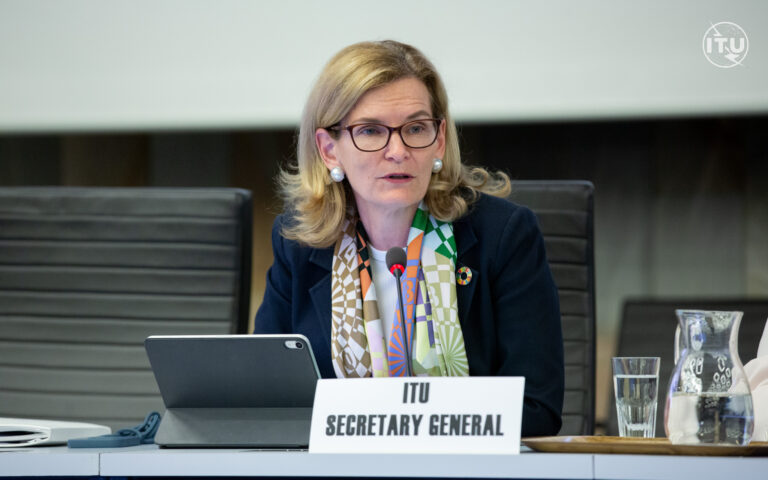
There are no more excuses for not having digital gender equality now.
Mathu Joyini highlighted the importance of the event to ensure that the Agreed Conclusions are shared, showing the synergies across all agencies and programmes. She specially emphasized the importance to protect human rights in online spaces and the commitment needed from all stakeholders.
Adriana Quinones showed UN Women’s satisfaction with the outcome document as it contains strong commitments to advance gender equality, the human rights and the empowerment of all women and girls around innovation and technology. She mentioned the main recommendations and called on all stakeholders, Member States, public and private sector, youth, and the entire UN system to drive the momentum and commitment to advance gender equality through technology and innovation.
Peggy Hicks highlighted the need to close the gender digital divide and the importance of building safe online spaces, while recognizing that online engagement is a double-edged sword. She emphasized the following key elements that came through in the Agreed Conclusions: structural discrimination and intersectionality, the rights to equality and to privacy into dignity, but also bodily integrity, including sexual and reproductive health and rights and, the importance of women’s meaningful participation into these conversations and within the tech industry.
To conclude, she highlighted that the human rights framework is the essential foundation for this conversation, the role of Member States is crucial when it comes to implementation and moving forward on challenges and, companies do have human rights responsibilities. In this sense, OHCHR is working with them to figure out how they can do better in recognizing those human rights responsibilities in the digital space.
Cosmas Luckyson Zavazava started his intervention recalling “Girls in ICT Day” and the celebration held in Zimbabwe where 1,000 girls participated. He summarized his intervention emphasizing the following key challenges: access, digital skills gap and security, while explaining the impact of their work on the least developed countries, where 70 percent of the population in rural areas are women without access to education.
He explained two ITU’s initiatives that addressed the digital skills gap, namely the ITU Academy and the Digital Transformation Centers, and the recently announced Network of Women Digital Ministers.
Philippe Lust-Bianchi focused on how the Spotlight Initiative is using technology to prevent and respond to violence against women and girls. The initiative has developed an SMS system in Mozambique targeting young people to answer questions about the challenges they face, in Ecuador they have developed technology to collect data related to femicide and, they have also involved influencers to engage with gender-based violence survivors. He highlighted that every time they design a new tool, survivors sit at the table to ensure the tools are responsive to the needs of women and girls.
Giovanna Dughera thanked the incorporation of the private sector perspective into the event. She highlighted that one of the pillars of Microsoft is the democratization of technology which addresses the barriers, and the discrimination that minorities or women may face. She mentioned the importance of building a diverse and inclusive team which would contribute to less biased solutions.
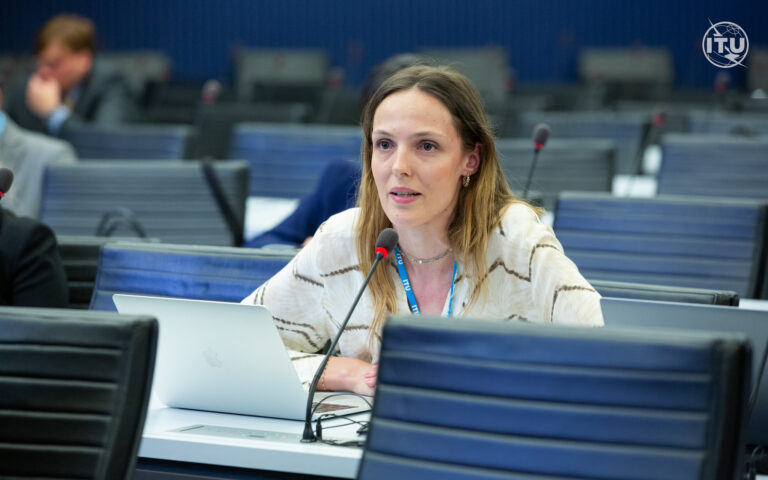
Technology has the potential to empower women and girls, and improve their lives at different levels.
Finally, the event finished with an open discussion including the audience and the closing remarks by the Claudia Fuentes Julio.
Erik Lundberg (Deputy Director General of the Political Department at the Ministry for Foreign Affairs of Finland) emphasized their commitment to promoting the rights of women and girls in all their diversity where technology plays a crucial role, reaffirming their support to the generation equality process and the Action Coalition on Technology and Innovation. He highlighted that the Agreed Conclusions demanded robust implementation calling on working for an open, safe, and equal digital future.
Daniela Varano (Communications Coordinator at ACT Alliance) pointed out how technologies can increase polarization, sexual exploitation, and gender-based violence as well as limiting spaces and participation. Carolyn Handschin (CSW Committee in Geneva) highlighted the importance of opening a conversation on the issue to guarantee the full development and achievement of women and girls to exercise and enjoy their human rights and fundamental freedoms.
Lina Yakunina (Girls in Tech Switzerland), offered the perspective from the youth, emphasizing that technologies and innovation can empower young women and girls and improve their lives at different levels, while Shiran Mlamdovsky (Somech Social Tech Entrepreneur and Impact Leader at D-ID), explained her projects, which aimed to increase awareness of gender-based violence and support women trapped in the cycle of domestic violence.
Claudia Fuentes Julio (Chile’s Ambassador) concluded by emphasizing that the consensus reached at CSW should mobilize all parties to a greater and better action, noting that international cooperation is an essential aspect to increase Internet connectivity for women and girls as well as to make progress in creating safer digital spaces.
Impressions from the event
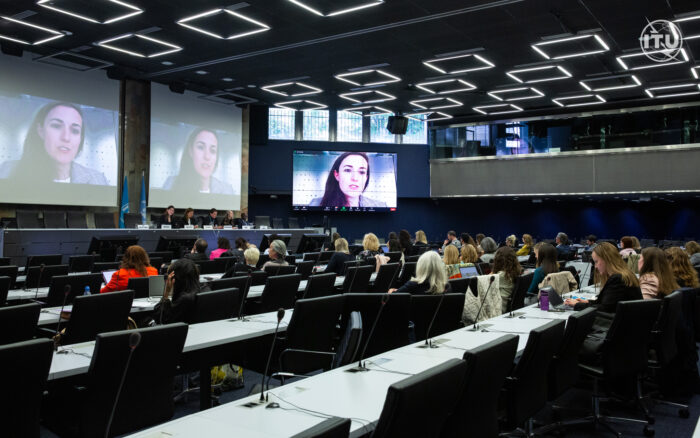
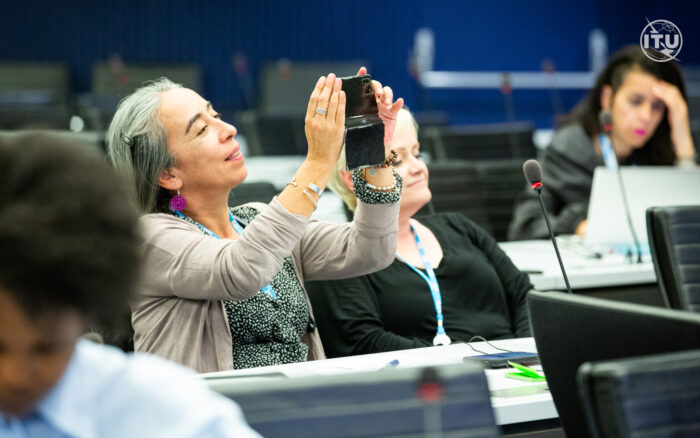
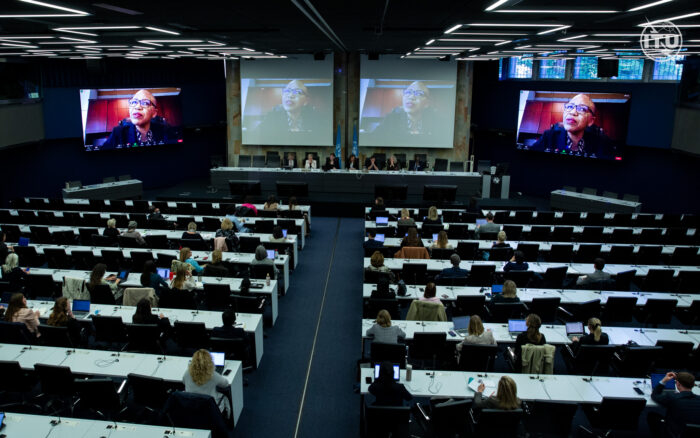
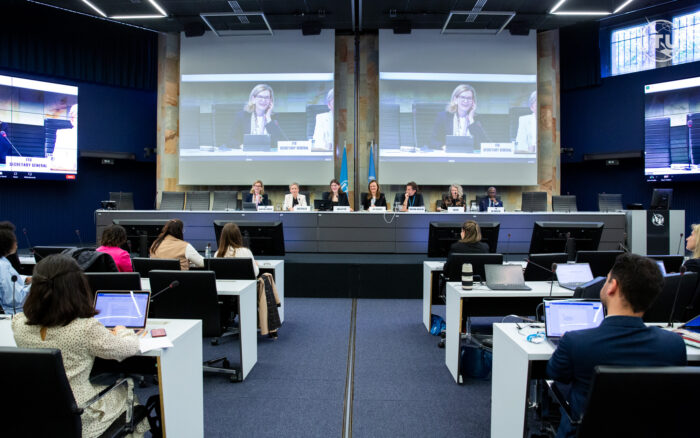
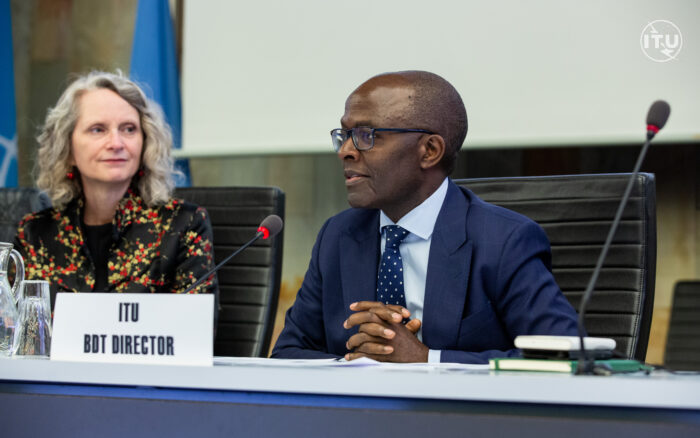
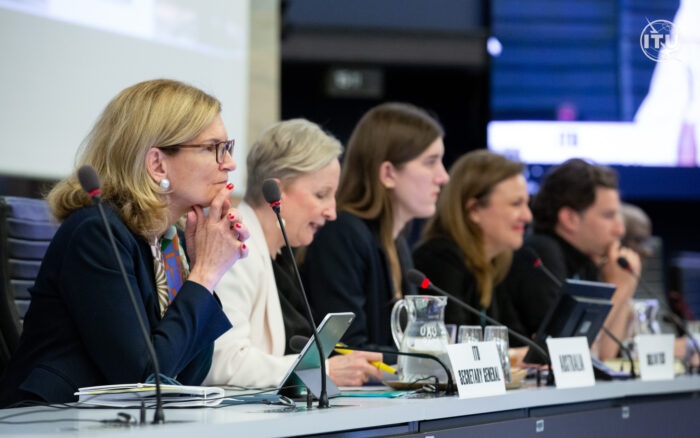
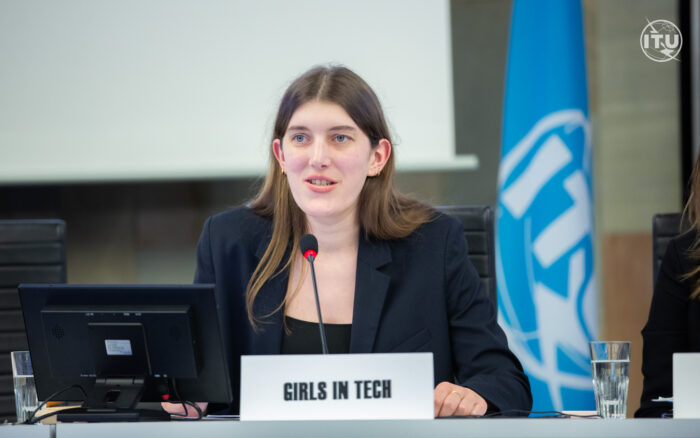
We’d like to thank UN Women and ITU for this insightful event and collaboration.
Also big shout-out to Anne-Sophie from the Girls in Tech Switzerland team for a fantastic moderation, and Lina for her advocacy for young girls and women in tech!

